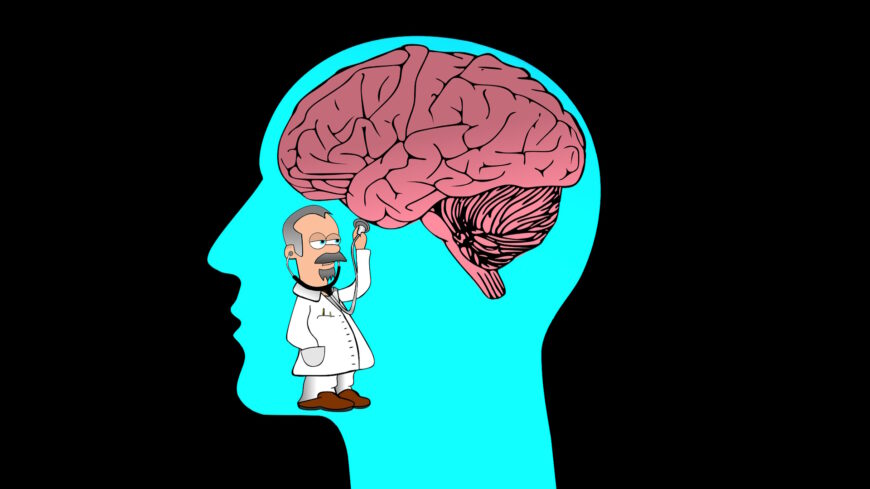
The Psychiatric Diagnostic Evaluation: Medical Expertise or Smoke And Mirrors?
By Lawrence Kelmenson, MD, Mad in America
November 21, 2023
Psychiatrists used to not put much effort into diagnosing. Instead, they focused on getting to and working on the issues in their clients’ lives that were upsetting them. But all that changed when the 1980 DSM came out. Since then, diagnosing mental disorders has been one of their main focuses (prescribing medicine being the other). People pay huge sums of money for psychiatrists’ expert opinions, and their diagnostic evaluations carry great weight in court, school, the workplace, and disability determinations. But is this truly warranted? Is a doctor really needed to make a psychiatric diagnosis, or can anyone do it?
Here are three points which support the idea that anyone can make a psychiatric diagnosis:
1. All the diagnostic criteria that psychiatrists learn in their training can be easily found on various websites. Therefore anyone can look up the criteria for diagnosing any mental illness and then conduct a do-it-yourself diagnostic evaluation.
2. It’s true that only trained doctors can perform physical exams and order lab tests, x-rays/scans, biopsies, etc.. And it’s true that only doctors are qualified to interpret their results. But these medical workups are only ever done to verify physical illness diagnoses, like cancer or diabetes. They are never done to diagnose mental illnesses. If a medical workup is ever done during a mental illness evaluation, it’s only to rule out a real (physical) illness.
3. If one examines the criteria for all the mental illness diagnoses, it becomes clear that identifying them doesn’t require any medical background or skill. For example, here are some criteria for diagnosing depression: diminished interest/pleasure in activities, indecisiveness, and feelings of worthlessness. First of all, these are not terms/concepts that only doctors are privy to. Secondly, they’re vague, subjective perceptions rather than objective, scientific facts. They’re in the eye of the beholder. Thus, any human could offer an opinion as to whether or not someone is experiencing them. Who’s to say which is the “right” opinion?
These are all excellent points.
But if a regular human such as you dares to take it upon yourself to perform a psychiatric diagnostic evaluation, you’ll be laughed at for your brazenness. You need a doctor’s official stamp of approval to make the diagnosis appear legitimate and valid. Doctors are greatly revered and trusted. Only if you tell others that a learned doctor diagnosed you with your mental illness, will it be viewed as a proven fact rather than a mere opinion. So even though psychiatrists don’t use any medical knowledge when making diagnoses, they do have MD degrees, and that’s enough.
Furthermore, for centuries psychiatrists have been designated by society to be the supreme authorities over several key areas: They decide who is insane and should be involuntarily committed and forcibly sedated. They also determine who is mentally unfit and should lose their right to manage their own lives. Perhaps these longstanding power roles have culturally imbued psychiatrists with an aura of superhuman capabilities which makes all their opinions far more important than a regular person’s. The common belief that psychiatrists have the intimidating ability to read and manipulate people’s minds may enhance this aura. Without necessarily being consciously aware of the aura, people may sense it, fear it, and be awed by it. They may thus be particularly likely to unquestioningly, submissively accept whatever their omniscient psychiatrist diagnoses and commands.
Psychiatry’s aura of superiority may be what enabled it to convince people that mental illnesses are real physical illnesses, even though they’re opposites: First psychiatry constructed a fantasy about emotional distress being a medically-treatable disease caused by a chemical imbalance or brain anomaly.Then it turned it into a reality just by proclaiming it to be true. It didn’t matter that 50 years of intensive research never found any chemical imbalances or brain anomalies. Nor did it matter that antidepressants were proven to be mere placebos(1). When psychiatry says something is true, that makes it true, no matter how illogical. And this isn’t the first time this was done: The diagnosis of hysteria was taken seriously for many centuries. It was another example of emotional distress being unfoundedly declared to be a medical condition. This time it was said to be caused by a wandering uterus, and the treatment was to coax it back into place(2).
Psychiatry would lose its power over people if its aura was removed, because nothing would be left but smoke and mirrors. People would lose faith in it (just as happened to the Wizard of Oz when his curtain was removed, revealing that he wasn’t a higher being but just a regular human). Psychiatry’s customers would then realize that they’re not defective and helpless as their doctor oppressively insists. They’d see that they’re actually capable of thinking for themselves in order to devise adaptive ways to solve their own problems. (The tin man, scarecrow, and lion made the same realization after their wizard was shown to be a fraud.) If this ever happens, then people will no longer feel compelled to follow the yellow brick road to a doctor’s office to have their painful feelings medicalized.
1. Kirsch, I. “The Emperor’s New Drugs: Exploding The Antidepressant Myth”, Basic Books, New York, 2010.
2. Wellesley, M “A Load Of Ballokis” London Review of Books, 23 April 2018.
Lawrence Kelmenson has practiced psychiatry for 32 years, working with children, adults, and families. He graduated medical school from State University of New York, and completed psychiatric residency training at Cornell. He then became staff psychiatrist, and later medical director, of Craig House Hospital in Beacon, New York until 2000, and has since conducted a psychotherapy-based private practice in Cold Spring, New York.
Cover image credit: Conmongt

Truth Comes to Light highlights writers and video creators who ask the difficult questions while sharing their unique insights and visions.
Everything posted on this site is done in the spirit of conversation. Please do your own research and trust yourself when reading and giving consideration to anything that appears here or anywhere else.











